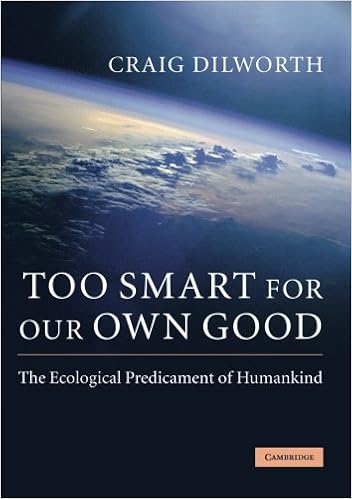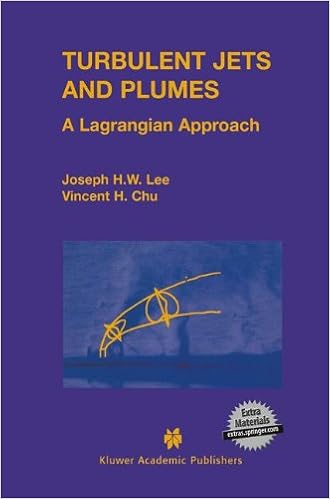
By Craig Dilworth
ISBN-10: 052175769X
ISBN-13: 9780521757690
ISBN-10: 052176436X
ISBN-13: 9780521764360
We're destroying our ordinary setting at a continuously expanding speed, and in so doing undermining the preconditions of our personal lifestyles. Why is that this so? This ebook unearths that our ecologically disruptive habit is actually rooted in our very nature as a species. Drawing on evolution thought, biology, anthropology, archaeology, economics, environmental technology and heritage, this publication explains the ecological concern of humankind through putting it within the context of the 1st clinical thought of our species' improvement, taking up the place Darwin left off. the speculation offered is utilized intimately to the complete of our seven-million-year historical past. as a result of its comprehensiveness, and partially because of its vast thesaurus and index, this e-book can functionality as a compact encyclopedia masking the complete improvement of Homo sapiens. it will additionally go well with various classes within the lifestyles and social sciences. most significantly, Too shrewdpermanent makes obtrusive the very middle of the paradigm to which our species needs to shift whether it is to outlive. a person interested by the way forward for humankind may still learn this ground-breaking paintings. This booklet: • offers the 1st and simply thought of humankind's improvement • Explains that financial and political (military) strength have their respective organic bases in person vs. workforce territoriality • offers the 1st category of human instincts: into the survival, sexual and social instincts • offers the main inclusive characterization of other different types of inhabitants payment but awarded • Explains the significance of the anthropological, archaeological and monetary findings of the prior 50 years to knowing humankind's improvement • Clarifies the preconditions for human existence in the world • Predicts what's going to ensue to us within the close to destiny
Read or Download Too Smart for Our Own Good: The Ecological Predicament of Humankind PDF
Similar pollution books
Lagrangian Mechanics, Dynamics and Control by Andrew D. Lewis PDF
Adopting an intuitive, but rigorous strategy, this paintings offers huge assurance of nonlinear structures and regulate concept. Student-friendly language, an abundance of specific, labored examples, and more and more refined arithmetic make the textual content applicable and available to more than a few pupil pursuits and degrees.
Turbulent jets and plumes: A Lagrangian approach by Joseph Hun-wei Lee, Vincent Chu PDF
Jets and plumes are shear flows produced by way of momentum and buoyancy forces. Examples contain smokestack emissions, fires and volcano eruptions, deep sea vents, thermals, sewage discharges, thermal effluents from strength stations, and ocean dumping of sludge. wisdom of turbulent blending by means of jets and plumes is necessary for environmental regulate, influence and threat evaluation.
Read e-book online Biotechnology for Pulp and Paper Processing PDF
This publication offers the main updated info to be had on quite a few biotechnological methods helpful within the pulp and paper undefined. all the twenty chapters covers a selected biotechnological method or approach, discussing the benefits, barriers, and destiny customers of an important and well known methods utilized in the undefined.
R. D. Roberts, T. M. Roberts (auth.), R. D. Roberts, T. M.'s Planning and Ecology PDF
Specialist making plans is often outlined as an task that is fascinated about the rational allocation or exploitation of assets for man's greatest brief- and long term profit. The technological know-how of. ecology is the examine of the elemental parts of those assets (soil, water, air and so on. ) and their inter relationships with dwelling organisms.
- Historic Cities and Sacred Sites: Cultural Roots for Urban Futures
- Atmospheric Turbulence and Air Pollution Modelling: A Course held in The Hague, 21–25 September, 1981
- Metal Pollution in the Aquatic Environment
- Biotechnology for Odor and Air Pollution Control
Extra info for Too Smart for Our Own Good: The Ecological Predicament of Humankind
Sample text
To humans’ 46 and horses’ 64. One can say rather generally that all of the phenotypic characteristics that the members of a species share stem from their species’ karyotype, while the characteristics that distinguish them stem from their genes. Over the last 500 million years few new species have arisen. 17 Part of what defines a species is that its populations are descended from the same ancestors, as in the case of dogs and wolves. e. have a karyotype different from that of its parents, and go on to create a new species – in a sexually reproducing species this would virtually always be together with a member of the opposite sex of the original species.
Due to the fact that organisms higher on the food chain eat those lower on it, whatever matter that is ingested and accumulates in organisms gains in concentration the higher the organism is on the chain. Many artificial substances produced by humans, such as DDT, are of this kind, such that we find them in toxic concentrations in such animals as birds of prey and humans. 22 In the case of all animal species other than humans, virtually all energy taken in comes in the form of food, obtained by eating members of other species.
Genes, chromosomes, organs, organisms and populations. A species is the form15 a population takes, a form determined by its karyotype; or, since species are conceptually primary, we should say that the (total) population of a species is the phenotypic manifestation (Glossary) of the species’ karyotype. Despite the formal nature of species, systems notions can be applied to them as well as to populations – but it is to be kept in mind that in so doing one is working on a higher level of abstraction.
Too Smart for Our Own Good: The Ecological Predicament of Humankind by Craig Dilworth
by Kenneth
4.4



